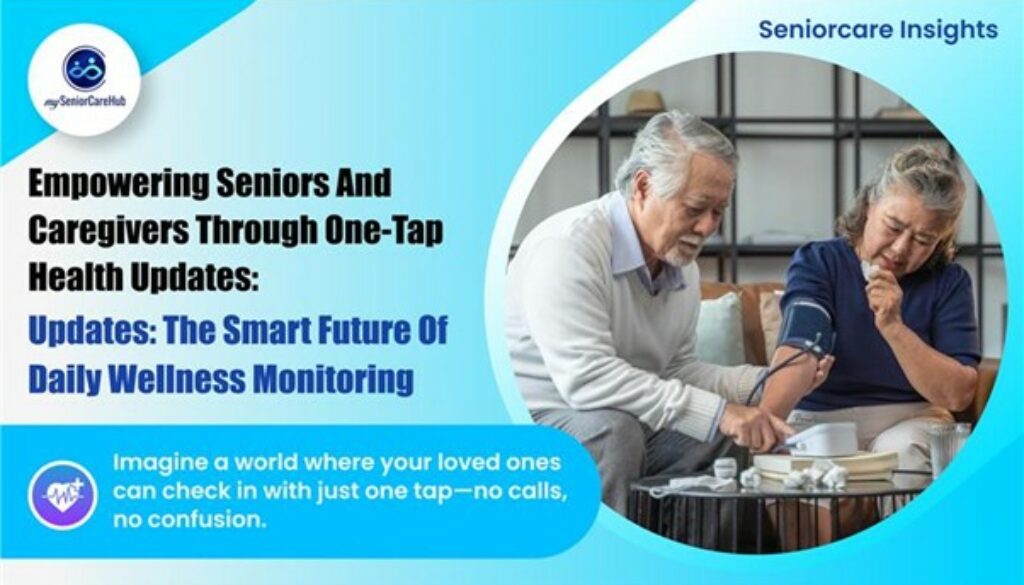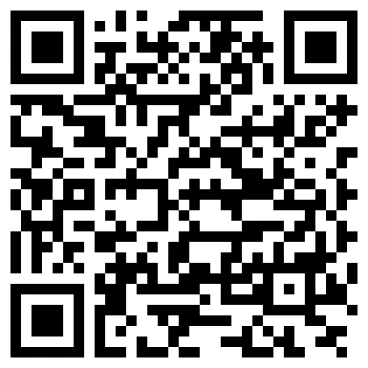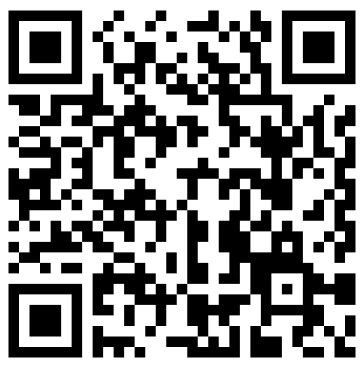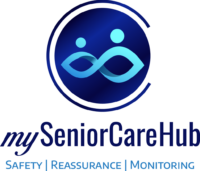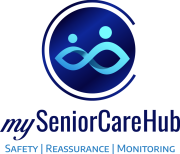One Tap a Day: How a Simple Check-In Can Help Detect Strokes, Falls, and Keep Grandma Safe
A Tap That Brings Peace to Family – Daily Check-in App for Seniors Living Alone
Although taking care of elderly loved ones is a duty based on love, there is frequently a persistent undercurrent of anxiety, particularly when family members live far away.
The mind starts to stray to the worst-case scenarios after just one missed call and one unanswered text. What if clarity could be achieved with a tap to eliminate this uncertainty?
The one-tap daily wellness check feature on mySeniorCareHub promises to do just that. Not only is it a tool, but it’s also a silent companion that ensures your loved one is alright every day and assists you in acting before minor health issues become serious.
What is a Daily Check-in App for Seniors Living Alone?
The daily check-in is more than just a notification; it’s a structured engagement system that balances elderly autonomy and caregiver assurance.
| Feature | What It Offers |
| One-tap Daily Wellness Check | A simple “I’m okay” or “I’m not okay” tap, no typing, no hassle |
| Activity Timeline & Location | Tracks movement and routine, flags inactivity or unusual behaviour |
| Instant Notifications | Caregivers receive alerts for missed check-ins or negative responses |
| Routine Building | Reinforces healthy habits, structure, and daily interaction |
It’s a non-intrusive digital gesture that encourages mindfulness and monitoring.
Why It Matters: Detecting Health Issues Early – Daily Check-in App for Seniors Living Alone
Small signs often precede major health events in the elderly. While traditional care depends on scheduled check-ups or visible symptoms, this feature bridges real-time insight and timely intervention.
Here’s how common medical issues can be detected early using this feature:
1. Stroke and TIA (Transient Ischemic Attack)
- Warning Signs: sudden disorientation, weakness, and imbalance.
- How the Feature Helps: Delayed or missed check-ins and reduced activity patterns may reflect early neurological symptoms.
2. Falls and Fractures
- Warning Signs: Sudden inactivity or non-responsiveness.
- How the Feature Helps: By identifying when a person hasn’t moved in hours, the activity timeline enables carers to take prompt action, potentially averting “long-lie” complications like hypothermia or pressure sores.
3. Urinary Tract Infections (UTIs)
- Warning Signs: Confusion, fatigue, or unusual behaviour in seniors.
- How the Feature Helps: Seniors may not report pain, but they might tap “not okay” without knowing why. Such responses offer subtle yet valuable clues.
4. Cardiac Problems
- Warning Signs: Dizziness, shortness of breath, palpitations.
- How the Feature Helps: Early fatigue or discomfort may lead to fewer movements or a change in check-in routine.
Understanding the Broader Benefits:
Aside from catching red flags, the feature supports overall wellness in multiple ways:
Promotes Routine and Stability
- Seniors thrive on structure. A daily check-in becomes a self-care ritual and a mental reminder to assess their well-being.
Boosts Mental Health
- Knowing that someone checks on them daily, even digitally, reduces feelings of isolation and loneliness.
Supports Cognitive Monitoring
- Inconsistencies or delays in day-to-day interactions could indicate early cognitive changes, which could help monitor diseases like Parkinson’s or dementia.
Independence with a Safety Net – Daily Check-in App for Seniors Living Alone
Many seniors resist constant monitoring, fearing it takes away their independence. This check-in balances dignity with protection.
- Empowers Seniors: They’re not passive recipients of care but active participants in their wellness.
- Reduces Caregiver Guilt: Families stay informed without feeling overbearing.
- Respects Privacy: Only useful data derived from voluntary participation, no intrusive tracking or cameras.
It’s like saying “I’m here” without having to say anything at all.
Chronic Disease Management Made Smarter – Free Daily Check-in App for Seniors Living Alone
Chronic diseases require consistent attention. This feature can be integrated into disease-specific care plans by tracking behavior trends that may indicate worsening health.
| Condition | Daily Check-In Benefits |
| Diabetes | identifies signs of blood sugar fluctuations, such as irregular activity, fatigue, and missed meals. |
| Hypertension | Observes sudden inactivity, which could mean dizziness or early hypertensive symptoms |
| Arthritis | Flag mobility changes, helping to adjust therapy or pain management |
| Dementia | Tracks inconsistencies or missed check-ins, useful in early diagnosis and caregiver alerts |
This approach fosters preventive healthcare rather than reactive treatment.
The Emotional Connection

This feature’s impact isn’t limited to clinical outcomes. It touches on something far more human: connection.
For Seniors:
- Builds a sense of purpose and participation.
- Encourages daily reflection on health.
- Provides comfort in knowing someone is quietly watching out for them.
For Caregivers:
- Offers peace of mind through timely alerts.
Reduces stress and anxiety about sudden medical emergencies. - Enhances remote caregiving, especially for NRIs or families living in different cities.
In Indian families, where multiple generations often live apart for work or education, this tool becomes a vital emotional bridge.
What Makes It Stand Out? – Best Daily Check-in App for Seniors Living Alone
Unlike generic health monitoring tools, mySeniorCareHub’s daily check-in is tailored for the elderly:
- User-friendly design: Big buttons, intuitive interface.
- Low-tech barrier: No typing, voice commands, or complicated inputs.
- Integrated alerts: Families and doctors can be notified based on preferences.
- Data-backed patterns: Over time, it helps form a holistic view of senior health.
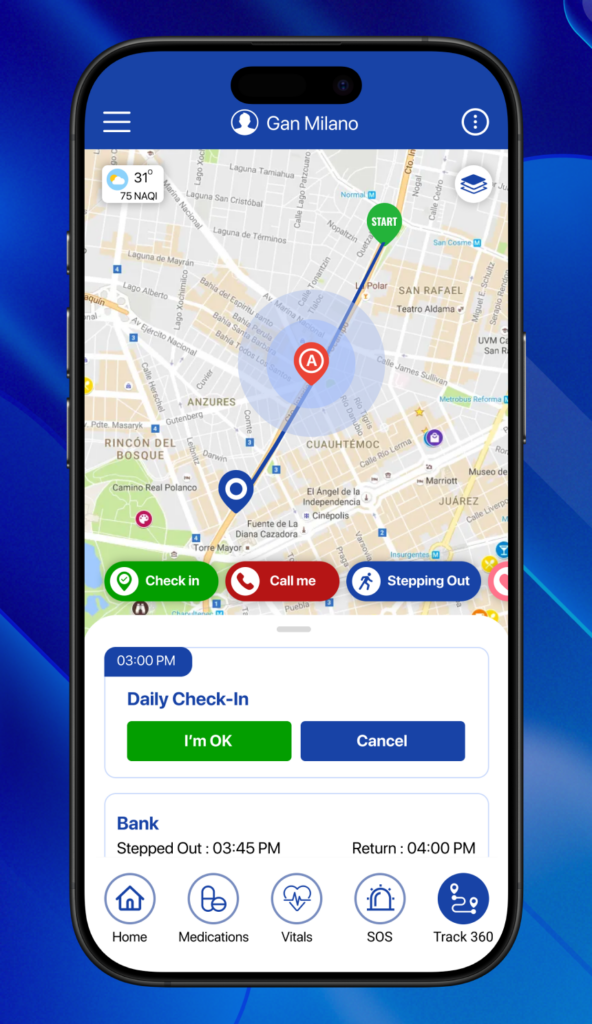
The Power of One Small Tap
Sometimes the simplest solutions work best in a world full of complicated health tools and overburdened systems. Although a one-tap check-in may not seem like much, it has a deep and multi-layered impact.
- It brings attention to the unnoticed.
- It connects hearts across miles.
- It prevents health risks before they escalate.
- It respects autonomy while offering safety.
When Grandma taps “okay,” she’s not just sending a signal. She’s reinforcing her independence, trusting her care circle, and making her health part of a shared story.
Sometimes we only need to hear that one tap to know she is safe, visible, and resilient.

